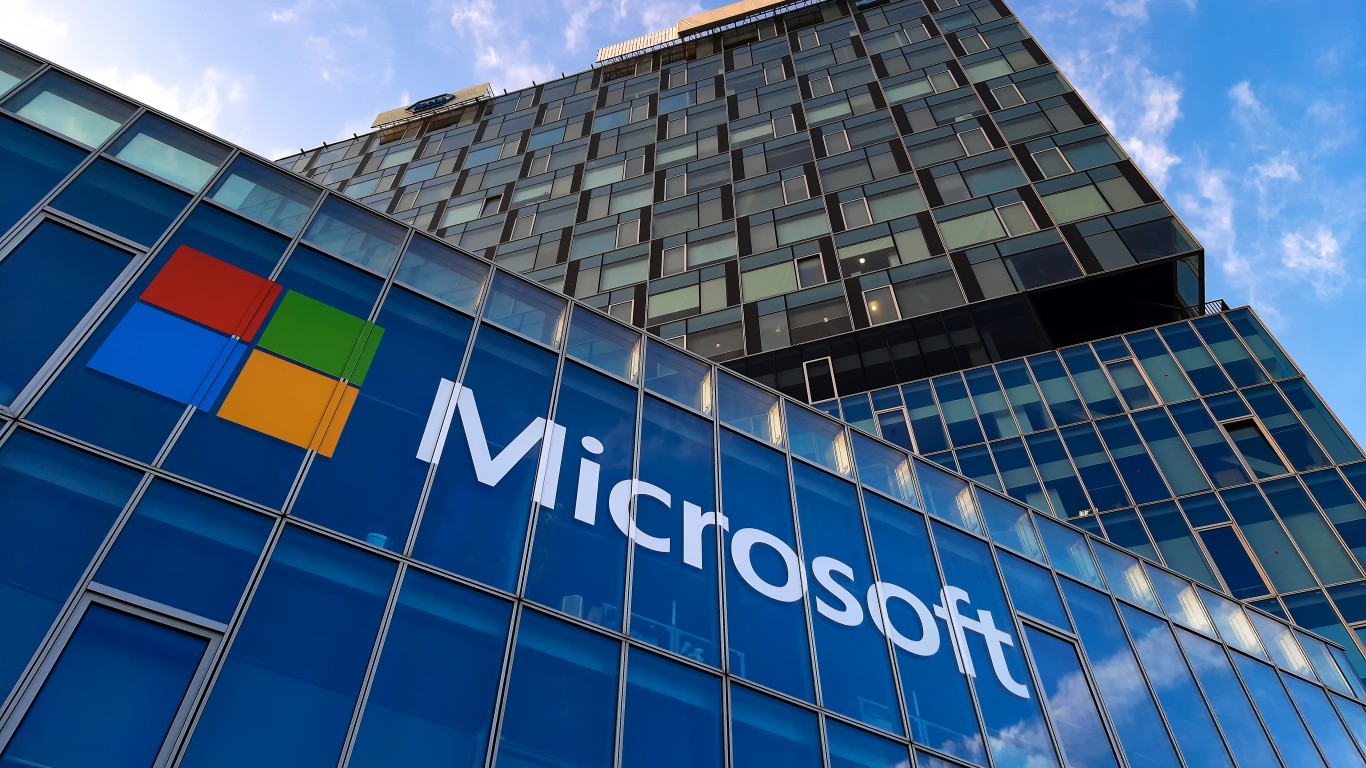

This discussion on the competition between Amazon (NASDAQ: AMZN) and Microsoft (NASDAQ: MSFT) in the cloud computing market, highlighting Amazon’s early dominance with AWS and Microsoft’s growing presence with Azure. The conversation explores the potential for Microsoft to surpass Amazon in market share by 2026 and considers the strategic advantages of each company’s integration of cloud services with their other products.
Transcript:
If you look at the tech landscape in the last five, 10 years, before AI became huge, the big play for money was in cloud computing.
It was basically massive server farms.
Now, the first people into this in a very large way was Amazon.
They were using it for themselves and their own clients.
They became number one in market share.
Microsoft saw this and said, we need to be in that business to boost earnings.
They started their own suite of cloud products, which is now called Azure.
How’s the fight going between those two?
Those are the two heavyweights. How’s that coming?
Well, needless to say, Amazon still dominates, but not by a lot.
They lost a couple of points of market share in the fourth quarter of last year, and it’s looking more and more that more customers are going to move to Azure or Azure, however it’s pronounced.
And in a few years, according to data I have, they think by 2026, which is just a couple of years away, that Microsoft could be the leader in that field.
It’s part of this because if you look at AWS, you’ve got a parent company that is an e-commerce business.
And it’s got AWS, not really related.
At Microsoft, you have all these related products.
So if you’re in cloud computing, you have a bunch of other things, server software, PC software.
To me, it seems like it’s more easily integrated into an ecosystem of tech at companies.
Yeah, and for years now, Wall Street analysts and strategists have kind of knocked on the door for Amazon and say, hey, why don’t you spin off AWS and make it a separate entity?
And then you can track, as you were saying, the retail part of it and the consumer part with Amazon and AWS as a separate company or a separate entity.
I looked at the Amazon earnings for the first quarter.
What’s notable is that about two-thirds of the operating income, which is the way that Amazon measures it, came from AWS.
It’s not as big as the e-commerce, but the operating income contribution is huge.
Well, sure, just because the cost of doing business is a lot lower than everything with shipping and receiving and warehouses for product and dealing with vendors and all of that.
So, yeah, it’s a big earner and probably just at the end of the day, just lower to operate.
ALERT: Take This Retirement Quiz Now (Sponsored)
Take the quiz below to get matched with a financial advisor today.
Each advisor has been vetted by SmartAsset and is held to a fiduciary standard to act in your best interests.
Here’s how it works:
1. Answer SmartAsset advisor match quiz
2. Review your pre-screened matches at your leisure. Check out the advisors’ profiles.
3. Speak with advisors at no cost to you. Have an introductory call on the phone or introduction in person and choose whom to work with in the future
Take the retirement quiz right here.
Thank you for reading! Have some feedback for us?
Contact the 24/7 Wall St. editorial team.



